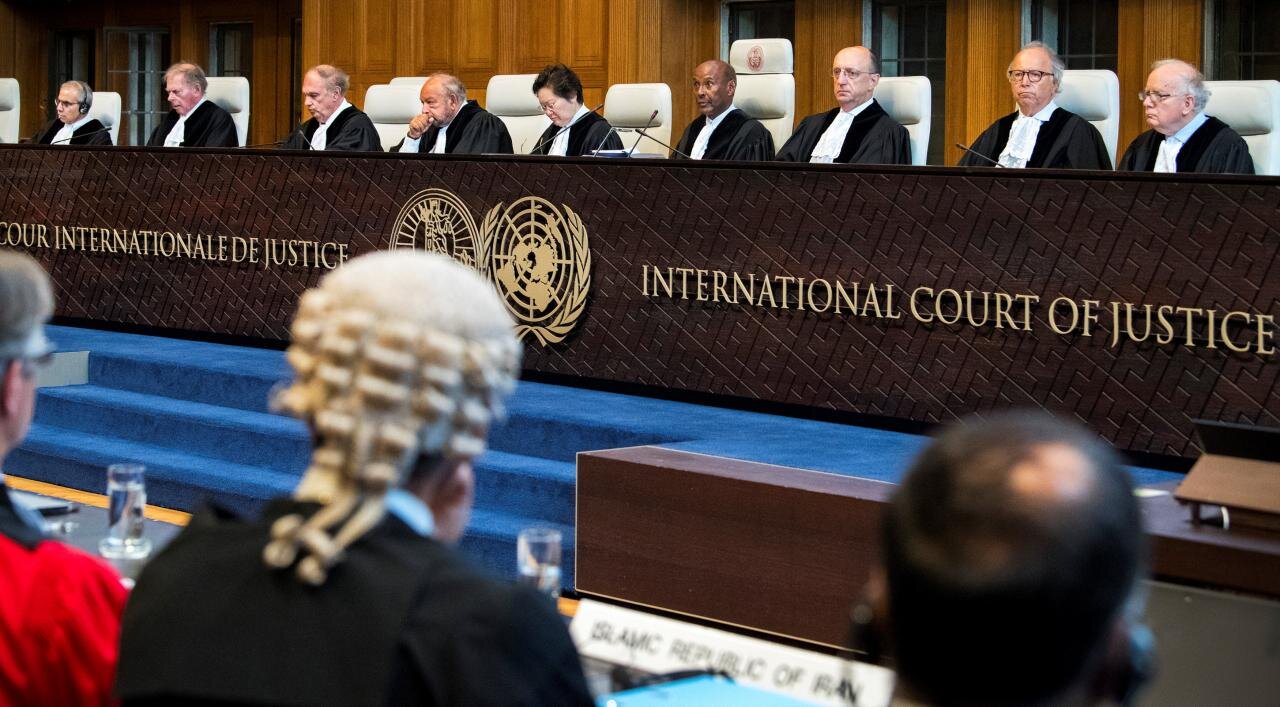South Africa files genocide case against Israel at ICJ: Why the African nation supports Gaza so strongly (Indian Express)

- 03 Jan 2024
Why is it in the News?
Amid international criticism of Israel for its continued bombing of Gaza, South Africa recently moved the International Court of Justice (ICJ), for an urgent order declaring that Israel was in breach of its obligations under the 1948 Genocide Convention.
About the International Court of Justice (ICJ):
- The International Court of Justice (ICJ) is the principal judicial organ of the United Nations (UN).
- It was established in June 1945 by the Charter of the United Nations and began work in April 1946.
- The seat of the Court is at the Peace Palace in The Hague (Netherlands).
- Of the six principal organs of the United Nations, it is the only one not located in New York (United States of America).
- The Court’s role is to settle, in accordance with international law, legal disputes submitted to it by States and to give advisory opinions on legal questions referred to it by authorized United Nations organs and specialized agencies.
- Its official languages are English and French.
- Powers and Functions: The ICJ handles two types of cases—contentious cases, involving legal disputes between States, and advisory proceedings, responding to legal questions referred by UN organs and specialized agencies.
- Contentious cases involve only UN member States or other States that have accepted the Court's jurisdiction.
- While the Court's judgments in contentious cases are final and binding, advisory opinions are not binding.
- Deciding disputes in line with international law, the ICJ relies on conventions, international custom, general principles, judicial decisions, and expert writings.
- Composition: The Court is composed of 15 judges, who are elected for terms of office of nine years by the United Nations General Assembly and the Security Council.
- It is assisted by a Registry, its administrative organ.
- To be elected, a candidate must secure an absolute majority in both UNGA and UNSC.
- The Court sees one-third of its composition renewed every three years, and judges are eligible for re-election.
- Once elected, judges declare their commitment to the impartial and conscientious exercise of their powers.
- They act independently, detached from any governmental influence.
- This comprehensive structure ensures the ICJ's role as a pivotal entity in the international legal landscape, providing judgments on contentious matters and advisory opinions on significant legal questions.
About the Genocide Convention 1948:
- The term 'genocide,' often casually employed in reference to attacks on various communities globally, finds its precise definition in the UN's Convention on the Prevention and Punishment of the Crime of Genocide, presented to the General Assembly in 1948.
- According to this Convention, genocide entails any of the following acts carried out with the intent to wholly or partially destroy a national, ethnic, racial, or religious group:
- Killing members of the group.
- Causing serious bodily or mental harm to group members.
- Deliberately inflicting conditions of life to bring about the group's physical destruction.
- Imposing measures to prevent births within the group.
- Forcibly transferring children of one group to another.
- This Convention categorizes genocide as a crime, applicable irrespective of whether it occurs during wartime or peacetime. India ratified the convention in 1959, although no specific legislation addressing genocide has been enacted to date.
